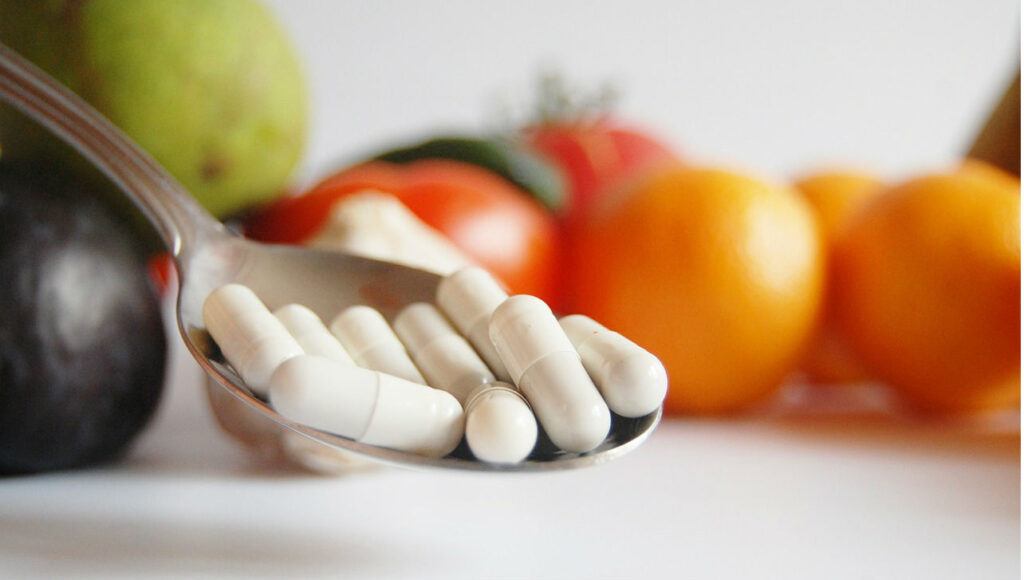Probiotics for Women: Amazing Benefits for a Healthy Gut
Who would have thought digestion would become such a popular topic? In recent years, more people have taken a serious interest in their overall wellness, and gut health is now one of the most talked-about areas of personal care.
If you have looked into digestive health at all, you have probably heard about probiotics. These beneficial bacteria live naturally in your digestive tract and play a vital role in keeping your body balanced.
From supporting digestion to improving immune function, probiotics help maintain the healthy ecosystem your body depends on every day.
What Are Probiotics?
Our overall health begins in the gut. The gastrointestinal tract contains more than 400 species of bacteria, and about 85 percent of these are beneficial to our health. The rest are less friendly strains that the good bacteria help keep under control.
To put it simply, our bodies are home to far more microbes than human cells. In fact, there are about 100 times more microbial genes in our bodies than human genes. This means Sothe bacteria living inside us have an enormous impact on how our bodies function, including digestion, immunity, and even energy levels.
Probiotics are the beneficial bacteria and yeasts that naturally live in the body. They play an essential role in digestion and maintaining a healthy gut environment. When our internal balance is disrupted by factors like stress, illness, or antibiotics, probiotics help restore harmony and support normal digestive function.
The importance of gut health started gaining attention in the mid-1990s, and since then, more people have been taking steps to improve it. Today, many healthcare providers recommend probiotics to patients who struggle with digestive discomfort or irregularity.
You can find probiotics in a variety of fermented foods such as yogurt, kefir, sauerkraut, kimchi, kombucha, and miso soup. Including these foods in your diet can help maintain a balanced digestive system and support long-term wellness.
The Benefits of Probiotics
The benefits of probiotics are many. The list of benefits increases with each new year of revealing research and intriguing discoveries. Since there are so many varying types and strains of these beneficial bacteria, many of the benefits are yet to be realized with further study. In case you’re not very familiar with it, I’ll list some probiotic benefits below.
1.) Antibiotics Kill Good and Bad Bacteria – Recover with Probiotics
When the healthy balance of bacteria in your gut is disrupted, your immune system can take a serious hit. Antibiotics, while sometimes necessary, don’t discriminate between good and bad bacteria. They wipe out both, leaving your gut vulnerable and unbalanced.
Furthermore, studies show that the healthy diversity of gut flora rapidly decreases and cannot be recovered without intervention. That’s why, in our home, we use antibiotics only when truly needed.
As a child, I can remember being prescribed antibiotics several times for mild illnesses that probably didn’t require them. Maybe you’ve had a similar experience, feeling better for a short while, only to deal with stomach discomfort or lowered immunity later.
Think of it this way: antibiotics clear out all bacteria, both helpful and harmful, while probiotics work to rebuild and maintain the good bacteria that protect your health. It’s like tending a garden. Using antibiotics can be compared to burning weeds with a flamethrower; you’ll eliminate the weeds, but you’ll also destroy the vegetables you wanted to keep. When new growth starts, the weeds usually come back first, often stronger than before.
Probiotics act like replanting healthy seeds after a burn-off in the garden. They help restore balance by encouraging beneficial bacteria to grow and keeping harmful bacteria under control. By replenishing your gut after antibiotic use, probiotics help your body return to optimal function, supporting digestion, energy, and a resilient immune system.
2.) IBS – Irritable Bowel Syndrome
Research on the effects of probiotics for relieving symptoms of irritable bowel syndrome (IBS) is still developing. Many of the studies conducted so far have been small or limited in quality, so while the evidence is promising, it’s not yet conclusive.
One probiotic strain that has shown the most consistent benefits for IBS is Bifidobacterium infantis. This particular strain has been linked to improvements in common IBS symptoms such as gas, bloating, and abdominal discomfort. Some studies suggest it may help regulate bowel movements and improve overall digestive comfort for certain individuals.
If you are considering probiotics to help manage IBS, it’s best to discuss your options with a healthcare provider first. They can recommend a strain and dosage suited to your needs. It can also be helpful to keep a symptom journal. You should note which probiotic you’re taking, the dosage, and any changes in how you feel over time. This record can help you and your provider determine whether the probiotics are making a positive difference in your digestive health.
3.) Healthy Immune System
Again, probiotics promote the healthy balance of beneficial bacteria in the gut.
- There is now evidence of a relationship between immune health and beneficial bacteria specifically.
- Bacteria influence certain aspects of the immune system in the gut.
- For example, Good bacteria in the gut have been shown to influence the immune system in regard to its ability to correct imbalances and support overall immune function, as evidenced by recent research.
Additionally, good bacteria in the gut have been shown to influence the immune system in regard to its ability to correct T cell deficiencies by increasing their number. While it’s not exactly known why or how probiotics are linked to these benefits, studies do show some correlation, and the evidence points in the right direction.
4.) Allergies
Research is still in the beginning stages in the area of probiotic use and allergies. However, there is at least one high-quality study that shows a relationship between probiotic use among women during pregnancy and a 30 percent reduction in the instances of eczema among children.
In case you didn’t know, eczema is also an early sign of allergies.
5.) Obesity
Research suggests that the composition of gut bacteria in people who are obese differs from that of people who are lean. Because of this difference, scientists are exploring whether changing the gut microbiome through probiotics could play a role in supporting healthy weight management.
Early studies indicate that gut bacteria may influence how the body stores fat, regulates appetite, and manages blood sugar. One study published in the British Journal of Nutrition found that women who took probiotics over a 12-week weight loss program lost more weight than those who did not take probiotics. Interestingly, this effect was not observed in the men who participated in the same study.
While the research is still preliminary, it highlights a potential connection between gut health and metabolism. Maintaining a balanced gut flora through a healthy diet, fiber intake, and possibly probiotics may contribute to better weight management when paired with regular exercise and a nutrient-rich diet.
“The present study shows that the Lactobacillus rhamnosus CGMCC1.3724 formulation helps obese women to achieve sustainable weight loss.” – (Source)
In any case, much more study needs to be undertaken before any direct claims can be made. But again, the evidence is pointing in the right direction!
6.) “Down There” Health
Being healthy “down there” also relies on a healthy balance of the right bacteria. Healthy bacteria in the vagina can help prevent infections like bacterial vaginosis and yeast infections.
Some smaller studies also show that Lactobacillus acidophilus, specifically, helps support antibiotic treatment as well as prevent infection. In that particular study, the probiotic was taken as a suppository rather than internally by mouth. (Source)
As far as a link between probiotics that are taken orally and a lower incidence of infection in women, there’s an obvious need for further research in order to come to anything conclusive. However, there is at least some positive evidence regarding the L. acidophilus probiotic strain mentioned above.
How’s Your Gut?
Ladies, how’s your gut health these days? The word “gut” might not sound appealing, but it’s one of the most important parts of your body. A balanced gut helps your body digest food, absorb nutrients, and maintain a strong immune system.
Think about all the tiny living organisms in your intestines. Are you helping them stay healthy so they can keep protecting you? Those beneficial bacteria work quietly behind the scenes, keeping harmful bacteria from taking over. When the balance shifts, your digestion, energy, and even mood can be affected.
Research continues to show how vital a healthy gut is to your overall well-being. The best way to support it is with a diet rich in fruits, vegetables, and fiber. If you don’t always get enough probiotic-rich foods or have recently taken antibiotics, consider adding a probiotic supplement. It can help restore healthy bacteria and keep your system balanced.
Here’s to taking care of your gut and enjoying the energy, clarity, and well-being that come with it.
Healthy Gut and Probiotics FAQs
What are the general benefits of probiotics for women?
Probiotics support digestive health, boost immune function, and may even improve skin clarity and mood.
Can probiotics help with common digestive problems?
Yes. A balanced gut microbiome can help reduce bloating, gas, and irregular bowel movements while improving digestion overall.
How might probiotics affect skin health?
By calming inflammation and promoting balance in the body, probiotics can help reduce flare-ups and support a clearer, more radiant complexion.
Could probiotics play a role in weight management?
Some research suggests that probiotics may help balance the gut bacteria that influence metabolism and appetite, although results vary among individuals.
What’s the best way to add probiotics to a woman’s diet?
Include probiotic-rich foods such as yogurt, kefir, sauerkraut, kimchi, and miso. For added support, consider a high-quality probiotic supplement with strains specific to your health goals.


